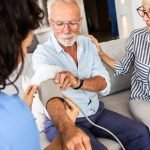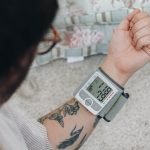This health issue in young men can signal undiagnosed diabetes
Erectile Dysfunction (ED) is often thought to be an issue primarily affecting older men, particularly those with long-standing type 2 diabetes.
However, a new study...
Dancing can help Parkinson’s patients control movements, study finds
The Joffrey Ballet and Doctors Team Up
Imagine walking into a dance studio in Chicago. The room is buzzing with excitement. Carly Liegel, who works...
Scientists find how immune cells contribute to Alzheimer’s disease
Groundbreaking Research at Massachusetts General Hospital
Scientists at Massachusetts General Hospital (MGH) have made an exciting discovery that could pave the way for new treatments...
Scientists find genetic markers for heart failure
In one of the largest genetic association studies on heart failure to date, researchers from the United States Department of Veterans Affairs and Brigham...
Poor diet can raise your diabetes risk regardless of your genetic risk
A groundbreaking study led by Jordi Merino of Massachusetts General Hospital has provided further insight into the roles that genetics and lifestyle choices play...
High blood pressure linked to brain scars, study finds
What Is Blood Pressure and Why Does it Matter?
You've probably had your arm squeezed by a doctor to check your blood pressure. They tell...
Her heart stopped during a procedure to treat her stroke
Holly Page was having a great day. She got her hair done, then enjoyed a long dinner catching up with friend Lisa Stillings. They...
A common blood pressure medication could help you live longer
The Medication in Focus: Rilmenidine
Do you know what rilmenidine is? It's a drug that doctors usually prescribe for high blood pressure. But new research...
7 healthy habits can fight off dementia, even if it’s in your genes
Researchers have been studying how our lifestyle choices can affect our risk of getting dementia when we're older. You know dementia, right?
It's that sad...
Taking more than 5 pills a day? ‘Deprescribing’ can prevent harm – especially for...
People are living longer and with more chronic health conditions – including heart disease, diabetes, arthritis and dementia – than ever before.
As societies continue...










